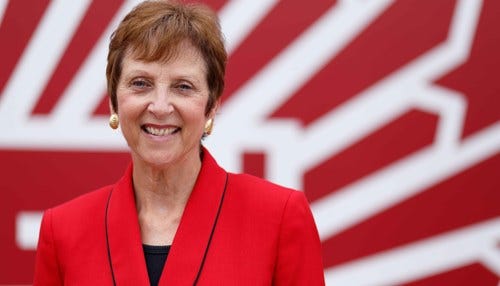Five Things Anyone Can Do To Combat Opioid Deaths

Subscriber Benefit
As a subscriber you can listen to articles at work, in the car, or while you work out. Subscribe NowWe’ve reached a tragic milestone in this country. For the first time ever, Americans are now more likely to die of an accidental opioid overdose than a car crash. At least 50,000 Americans—and possibly as many as 70,000—died from opioid overdose in the United States in 2017. And two out of every three Indiana residents knows someone battling addiction.
A crisis of this scale demands unprecedented collaboration and long-term investments from our state’s major institutions. And from Jim McClelland’s leadership of the state’s Next Level Recovery initiatives to the work of my colleagues as part of Indiana University’s Responding to the Addictions Crisis Grand Challenge initiative, it’s clear that our core institutions have responded with urgency.
But this is not a crisis that will only be solved by universities, hospitals and lawmakers. As Hoosiers, we are anything but helpless to respond in our own ways and in our own communities.
Here are five steps anyone can take to make a difference in this crisis:
Get trained on naloxone use.
Fighting the opioid crisis must start with preventing overdose deaths. And naloxone is among our most powerful tools to do so. Administered by injection or as a nasal spray, the medication can rapidly reverse the effects of an opioid overdose.
At least three of every four Hoosiers believe that law enforcement officials and other first responders should be trained and equipped to administer naloxone. Yet, while fire fighters or EMS officials may often be first on the scene to help an individual who has overdosed, the scope of this crisis means that—at times—each of us may be best positioned to save the life of a friend, neighbor or family member.
Thankfully, various organizations across our state provide naloxone training and distribute the medicine for free. And a brief training is a small price to pay considering that it will equip us to be the difference in saving the life of someone we love.
Educate yourself about treatment programs.
Supporting friends and family may mean being the person that encourages and takes them to a clinician where they can be assessed and referred to a treatment program. Our path to end this crisis demands that we continue to improve access to treatment, while also ensuring that medication-assisted treatment (MAT) included as a standard option of care.
State officials and medical professions continue to improve formal referral programs for their Indiana patients. We now have access to a statewide database of addiction treatment programs that allow us to search for resources in our communities.
Acknowledge that addiction is a disease.
We must remember that addiction is a disease. Moreover, the language we use to speak about addiction—including those afflicted with substance use disorder (SUD)—has implications for whether our family, friends and neighbors seek treatment.
Through focus groups conducted in Indiana and Wisconsin, Pew Charitable Trusts found that the stigma associated with opioid use discouraged some participants from seeking the appropriate care. But by acknowledging that addiction is a disease we can extend our much-needed understanding and compassion to those suffering from addiction—and ultimately break down some of the barriers that may prevent them from seeking treatment. The state has also developed helpful publicly available resources at NextLevel Recovery Indiana.
Support local non-profits active in supporting those with suffering from addiction.
Community groups are also critical to tackling the substance abuse epidemic. For example, Centerstone offers mental health and addiction treatment services across the Midwest, and its 23 Indiana centers provide treatment to over 24,000 Hoosiers annually. And Fairbanks is a national leader in recovery that’s treated those struggling with addiction in Indianapolis since 1945.
Volunteering with or donating to local organizations can help them ensure that individuals with substance use disorder have the adequate support systems they need and deserve.
Urge lawmakers to stay focused on addressing the opioid crisis, while adapting to new information.
In his state-of-the-state address, Governor Holcomb continued his advocacy for state-based initiatives to fight the opioid crisis. He also acknowledged the work still before us.
It’s clear that we now have better and more accurate data about this crisis, and evidence-based strategies that work. We are increasingly identifying best practices in our public policy efforts. And we have the resources to become even more responsive to the most pressing challenges of this crisis.
Addiction is a disease that affects all of us, including our friends, colleagues and loved ones. And while this crisis demands a comprehensive response, we all have an opportunity to do our part.
Robin Newhouse is Distinguished Professor and Dean of the Indiana University School of Nursing and the principal investigator of IU’s Responding to the Addictions Crisis Grand Challenge Initiative.
